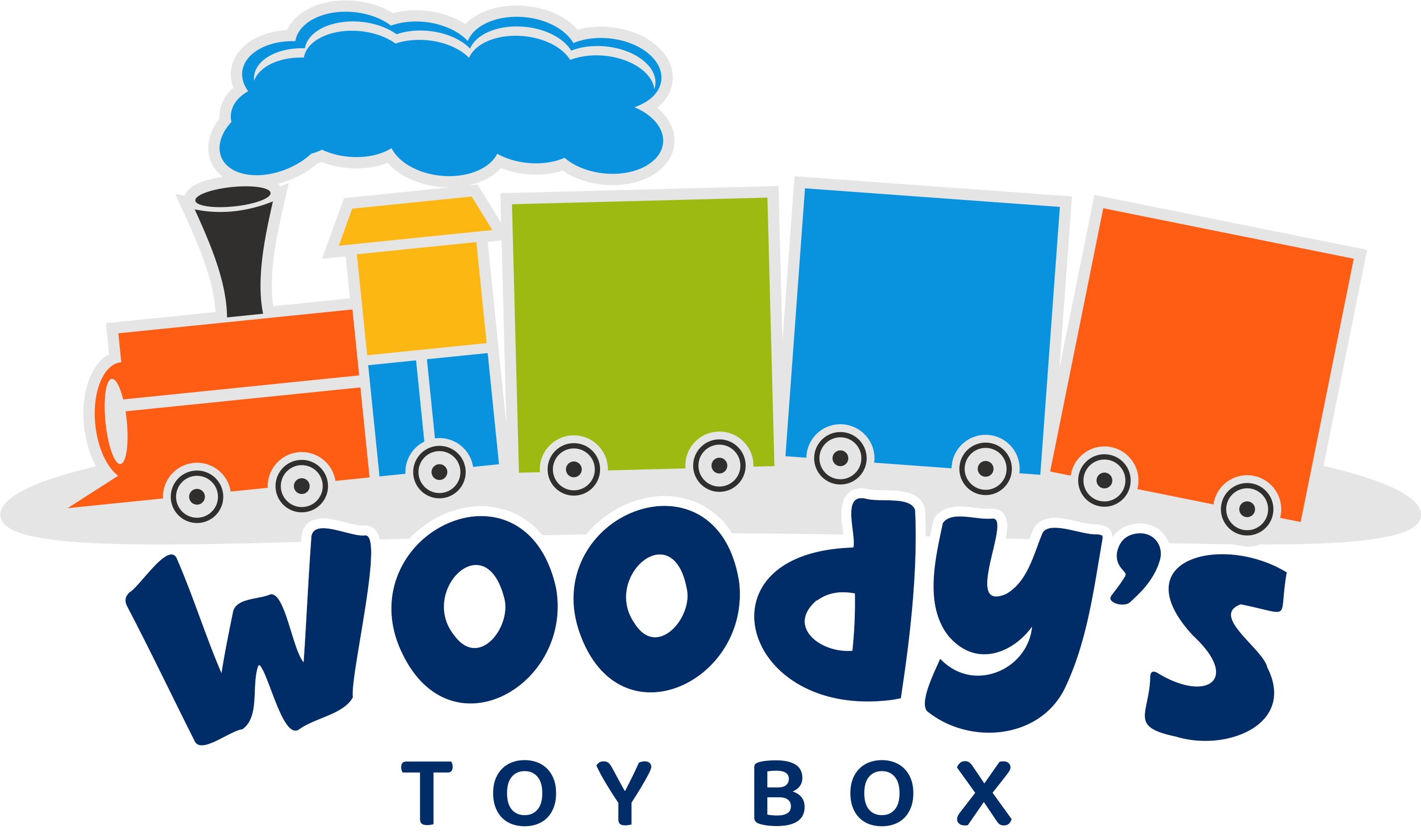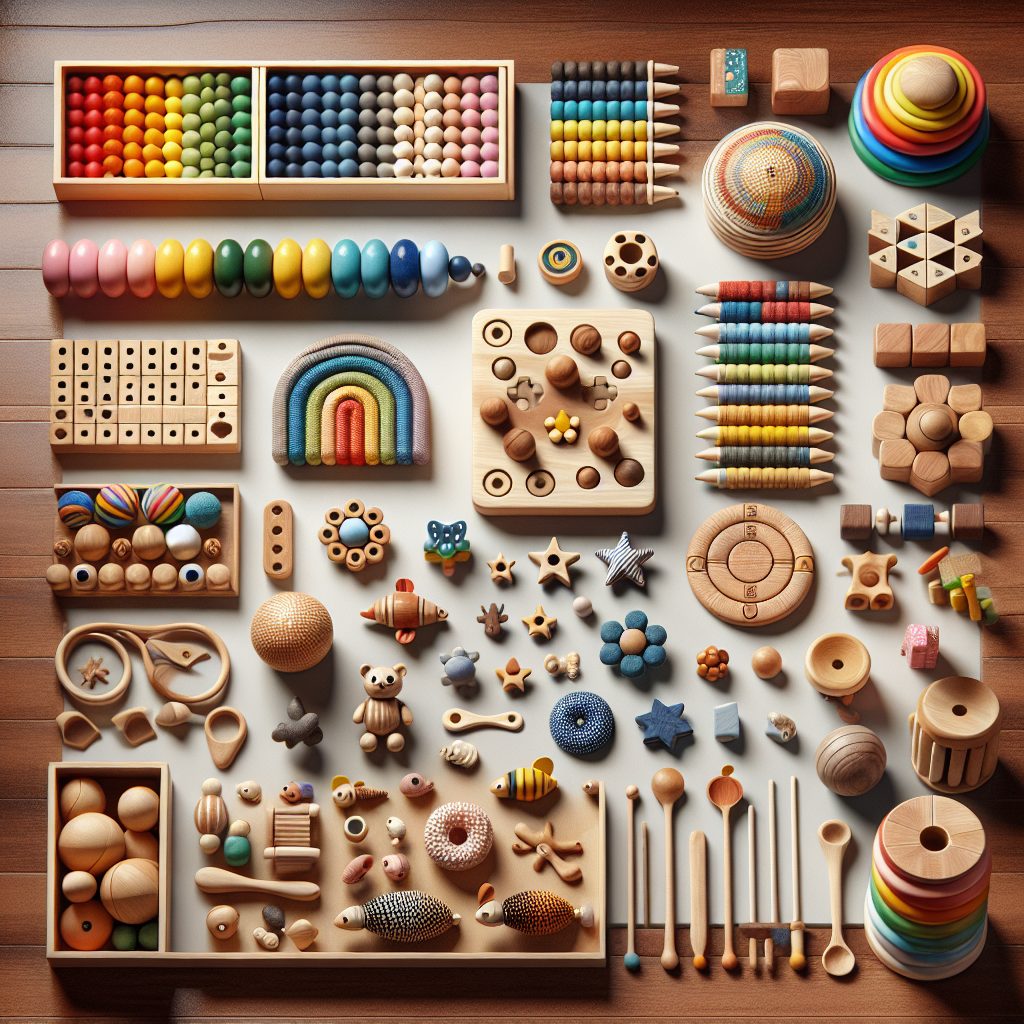Selecting Montessori Toys for preschoolers is a crucial process that requires thoughtful consideration. Montessori education, developed by Maria Montessori in the early 20th century, emphasizes hands-on learning and independent exploration. This educational approach aims to foster a child’s natural curiosity and self-confidence. Therefore, when choosing toys for preschoolers following the Montessori philosophy, it is essential to select materials that promote open-ended play, encourage problem-solving skills, and stimulate creativity. By providing children with toys that align with the Montessori principles, parents and educators can create an environment that supports children’s holistic development.
One key impact of selecting Montessori toys for preschoolers is fostering independent learning. Montessori toys are designed to encourage children to explore and discover the world around them at their own pace. These toys are usually simple and realistic, allowing children to engage in activities that mimic real-life situations, such as cooking or gardening. By engaging in these activities, children develop fine motor skills, concentration, and problem-solving abilities. Moreover, Montessori toys do not come with a set of instructions or rules, promoting freedom of choice and imaginative play. This flexibility enables children to follow their interests and explore various ways of interacting with the toys, ultimately enhancing their independence and decision-making skills.
In the next section of this article, we will discuss some key takeaways for selecting Montessori toys for preschoolers. We will explore the importance of choosing toys that promote sensorial exploration, practical life skills, and cognitive development. Additionally, we will provide practical tips to guide parents and educators through the process of selecting appropriate Montessori toys based on age and developmental needs. Stay tuned to discover how you can create an enriching and stimulating learning environment for your little ones using Montessori toys.
Key Takeaways
1. Montessori toys are designed to promote independent learning and foster a love for exploration and creativity among preschoolers. These toys focus on open-ended play and allow children to control and direct their own learning experiences.
2. Montessori toys should be made of natural materials and have a tactile element to engage a child’s senses. Avoid plastic toys with lots of buttons and sounds, and instead opt for wooden toys or materials like cloth and metal that offer a more sensory experience.
3. Toys that encourage practical life skills, such as puzzles, building blocks, and toy kitchen sets, are an essential part of the Montessori approach. These toys help develop fine motor skills, problem-solving abilities, and independence in children.
4. Consider toys that promote learning through exploration and discovery, such as sensory bins, nature-inspired puzzles, and science experiments. These toys allow preschoolers to engage in hands-on activities that spark curiosity and foster a deeper understanding of the world around them.
5. Montessori toys should be simple and promote creativity and imagination. Basic toys like art supplies, open-ended dolls or figures, and loose parts allow children to create their own narratives and develop their imagination. Avoid toys with predetermined functions or characters that limit a child’s creativity.
What are the top Montessori toys for preschoolers?
Understanding the Montessori Method
The Montessori Method is an educational approach developed by Maria Montessori that emphasizes self-directed learning and hands-on activities. It is based on the idea that children learn best through engaging with their environment and using materials specifically designed to enhance their development. When selecting Montessori toys for preschoolers, it is important to consider their age, developmental stage, and interests.
The Benefits of Montessori Toys
Montessori toys offer several benefits for preschoolers, including:
- Promoting independence and self-confidence
- Fostering creativity and problem-solving skills
- Enhancing fine motor skills and hand-eye coordination
- Encouraging cognitive development and logical thinking
- Developing social and emotional skills
Characteristics of Montessori Toys
When choosing Montessori toys for preschoolers, look for the following characteristics:
- Open-ended: Toys that can be used in multiple ways, allowing children to explore and create their own play scenarios.
- Sensory: Toys that engage the senses, such as those with different textures, sounds, or colors.
- Simple and natural: Toys made from natural materials like wood and cloth, with minimalistic design.
- Size and weight: Toys that are appropriately sized and weighted for preschoolers’ little hands.
Popular Types of Montessori Toys
There are various types of Montessori toys that are suitable for preschoolers:
- Montessori Sensorial Materials: These toys focus on developing the senses, such as puzzles, shape sorters, and stacking toys.
- Montessori Practical Life Materials: Toys that mimic real-life activities, such as pouring, buttoning, and sweeping toys.
- Montessori Language Activities: Toys that promote vocabulary development and language skills, such as storytelling props and alphabet puzzles.
- Montessori Math Materials: Toys that introduce basic math concepts, like counting toys, number puzzles, and pattern blocks.
Tips for Selecting Montessori Toys for Preschoolers
- Consider the child’s age and developmental stage to choose toys that are appropriate and challenging.
- Observe the child’s interests and choose toys that align with their preferences, whether it’s animals, nature, music, or art.
- Opt for toys that promote open-ended play and allow for creativity and exploration.
- Pay attention to the quality and durability of the toys, as they should withstand rough play and last for a long time.
- Remember that Montessori toys don’t have to be expensive. Look for affordable options that still meet the criteria of being natural, simple, and engaging.
By following these tips and considering the characteristics of Montessori toys, you can make informed decisions when selecting toys that will support your preschooler’s development and provide them with meaningful and enriching play experiences.
Frequently Asked Questions
1. What are Montessori toys?
Montessori toys are educational tools designed to promote independent learning and exploration in preschoolers. These toys are based on the principles of the Montessori educational approach, which emphasizes hands-on, child-centered learning.
2. How do Montessori toys differ from regular toys?
Unlike regular toys, Montessori toys are often made from natural materials and have a specific educational purpose. They are typically designed to encourage problem-solving, develop fine motor skills, promote concentration, and foster creativity.
3. At what age can preschoolers start using Montessori toys?
Preschoolers can start using Montessori toys as early as 2 years old. These toys are designed to accommodate various developmental stages and are adaptable to the individual needs and abilities of each child.
4. What should I consider when selecting Montessori toys for my preschooler?
When selecting Montessori toys for your preschooler, consider their interests, developmental stage, and learning goals. Choose toys that encourage independent exploration and offer a range of challenge levels to promote growth and development.
5. Are Montessori toys expensive?
Montessori toys can vary in price, but they don’t have to be expensive. There are many affordable options available that still adhere to the principles of the Montessori approach. It’s more important to focus on the quality and educational value of the toy rather than its price tag.
6. Can Montessori toys be used alongside other educational materials?
Absolutely! Montessori toys can be used in conjunction with other educational materials to enhance your preschooler’s learning experience. They can be integrated into a broader curriculum or used as supplemental tools for specific skills or concepts.
7. How many Montessori toys should I provide for my preschooler?
The number of Montessori toys you provide for your preschooler will depend on their individual needs and your available space. It’s important to strike a balance between offering enough choices to encourage independent exploration and preventing overwhelming clutter.
8. Can I make my own Montessori toys?
Absolutely! Making your own Montessori toys can be a fun and rewarding experience. There are many DIY resources available online that provide step-by-step instructions for creating Montessori-inspired toys using simple, everyday materials.
9. How can I ensure the safety of Montessori toys?
When selecting Montessori toys, ensure that they are age-appropriate and meet safety standards. Avoid toys with small parts that could pose a choking hazard and choose materials that are non-toxic and durable. Regularly inspect the toys for any signs of wear or damage.
10. Where can I purchase Montessori toys?
Montessori toys can be purchased from various sources, both online and offline. Look for reputable toy stores, educational supply websites, or Montessori specialty shops. You can also find a wide selection of Montessori toys on popular online marketplaces.
Final Thoughts
In conclusion, selecting Montessori toys for preschoolers involves considering their educational value, age-appropriateness, and individual interests. By providing them with a variety of Montessori toys, you can encourage their natural curiosity, boost their cognitive and physical development, and foster a love for independent learning.
Remember to observe your child’s play with the Montessori toys and make any necessary adjustments to meet their evolving needs. With the right selection of Montessori toys, you can create an engaging and enriching environment that supports your preschooler’s holistic growth and development.

